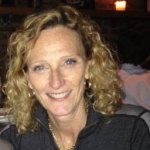As representatives of grantmaking foundations, I imagine we all feel fortunate to work in a field that is both rewarding and challenging. We have colleagues who are respectful, smart, and devoted to making a difference, and most of us are lucky to have dedicated boards that support our activities. Working for a smaller-staffed foundation also allows us to be more responsive and nimble; we simply don’t have the bureaucracy that challenges our peers in larger foundations.
Although we love our work and the communities we serve, smaller foundation staff can sometimes feel isolated.
When we walk to the water cooler, do we ever find a conversation in progress? Are our offices equipped with designated break rooms with tables and chairs for communal lunches, or is there a storage area in the corner with a one-cup Keurig rather than a coffee pot? Do we have plenty of time to join our colleagues for lunches and attend a variety of meetings, or do we more often eat at our desks to be sure the office is staffed and the always looming pile of reports get read?
I joined the world of philanthropy mid-career and have looked forward to coming to work every day for the past 14 years. My husband tells me that I’m the only person he knows who truly loves their job, and, although it’s a rather sad commentary on his field, it’s true for me.
What challenged me early on, though, was moving from a career where I was in constant communication with peers, students, and mentors to a job where I have 1.6 colleagues. Don’t get me wrong, I couldn’t ask for a more supportive executive director or lovely office mate, but our schedules often keep the door to our suite rotating as we try to attend site visits while ensuring someone is in the office to answer the phones.
Each staff member in our foundation brings different skills and experiences to our work. My value added comes from my training and experience as a public health practitioner. The field of philanthropy is not a common career choice for public health people, though, and I found it challenging to find similarly trained peers with whom I could share ideas.
For many years before joining the philanthropic sector, I attended the American Public Health Association (APHA) annual meetings, thriving on the knowledge and energy of its membership.
To remain connected to public health and bring this knowledge to my foundation, I continued to attend the APHA meetings, only to find that, although I could still learn from the practitioners, educators, and scientists at the meetings, I had trouble finding others who worked for smaller-staffed foundations with whom I could share public health grantmaking ideas.
In an attempt to rectify this situation, I found some wonderful public health colleagues in Chicago and together we approached APHA to discuss how small foundations that fund in public health might find ways to connect at APHA annual meetings.
That was in 2012, and in the following year APHA began to support the budding Public Health Funder Network (PHFN). Since 2013, with significant APHA assistance, the PHFN has offered sessions that bring funders of all sizes and the public health practice community together to share our work, learn best practices, and help the public health practitioners to better understand how foundations can positively impact the health of their communities and drive change. In turn, the funders are kept better informed about current public health needs, activities, and the latest data and trends, while building a network of funders from across the nation with whom we can stay connected.
Could this networking model work for your funding interests?
 Claudia Baier entered the field of philanthropy in 2002 as the first program officer employed by the VNA Foundation, where she remains today. In addition to her responsibilities at the foundation, Ms. Baier is an Advisory Council member for the Chicago Area Schweitzer Fellowship Program, founder and planning committee chair of the Public Health Funders Network sponsored by the American Public Health Association, an active committee member of Chicago Women in Philanthropy and Forefront (formerly the Donors Forum of Illinois), and a member at-large of Grantmakers in Health and Exponent Philanthropy.
Claudia Baier entered the field of philanthropy in 2002 as the first program officer employed by the VNA Foundation, where she remains today. In addition to her responsibilities at the foundation, Ms. Baier is an Advisory Council member for the Chicago Area Schweitzer Fellowship Program, founder and planning committee chair of the Public Health Funders Network sponsored by the American Public Health Association, an active committee member of Chicago Women in Philanthropy and Forefront (formerly the Donors Forum of Illinois), and a member at-large of Grantmakers in Health and Exponent Philanthropy.
